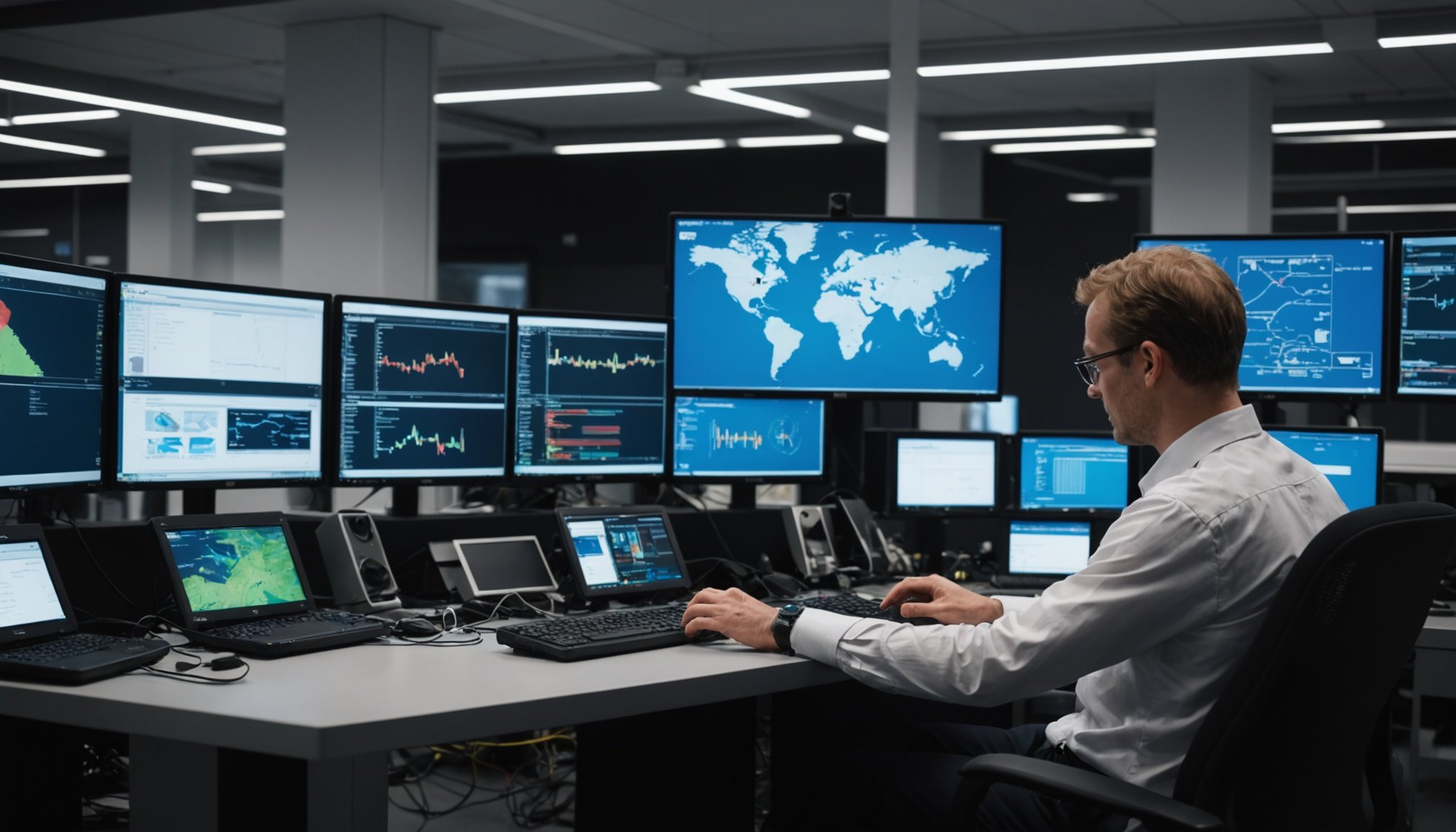Transforming Everyday Convenience through Computing Innovations
Smart home technology is revolutionising life across the UK, with high-tech innovations enabling seamless integration of devices. By connecting everyday appliances via the Internet of Things (IoT), homes become more responsive and efficient. For example, sensors can automate lighting and heating, adjusting to user habits and saving energy while enhancing comfort.
AI-driven solutions play a central role in managing daily routines. Virtual assistants schedule tasks, monitor security, and even suggest personalised optimisations based on behavioural patterns. This automation reduces the mental load of household management, allowing users to focus on more meaningful activities.
In the same genre : How Does Technology Shape the Future of High-Tech Innovation in the UK?
The impact on productivity and convenience is significant. Automated systems perform repetitive chores like vacuuming or grocery reminders, freeing up time and reducing stress. In the UK, where busy lifestyles prevail, such innovations offer practical benefits — transforming homes into intelligent environments that adapt continuously.
Adopting these technologies improves quality of life by intertwining convenience with cutting-edge computing. Smart home technology and IoT daily life integrations exemplify how automation, driven by high-tech innovations UK, is reshaping modern living, creating a future where convenience is just a voice command or an app away.
Topic to read : How Can Emerging Technologies Impact Daily Life in the UK?
Redefining Healthcare with Advanced Computing
Advancements in AI healthcare UK are transforming patient diagnosis and care delivery. AI-powered diagnostic tools help clinicians analyze complex data swiftly, enabling earlier detection of diseases and more precise treatment plans. This technology supports doctors in making informed decisions, reducing diagnostic errors and improving patient outcomes.
The rise of the digital NHS has revolutionized access to medical services. Patients can now consult healthcare professionals remotely, schedule appointments online, and receive prescriptions digitally. These digital health services reduce waiting times and enhance care accessibility, especially for those in remote areas or with mobility challenges.
Wearable technology plays a crucial role in continuous health monitoring, gathering real-time data on vital signs such as heart rate, activity levels, and sleep patterns. This data empowers both patients and healthcare providers to track health trends over time and manage chronic conditions more effectively. The integration of wearables with AI analytics further personalizes healthcare, enabling proactive interventions.
Collectively, the synergy of UK health tech innovations is not only streamlining care but also fostering a more patient-centered, efficient healthcare system. As these technologies advance, they promise to shape a future where healthcare is more accessible, precise, and proactive.
Revolutionising UK Transport and Mobility
Smart mobility UK is transforming how people and goods move across cities and regions. At the core of this shift is the development of smart transport infrastructure, which integrates advanced sensors, connectivity, and real-time data to optimise traffic flow and enhance safety. Payment systems are also evolving, with contactless and mobile solutions simplifying fare collection, making public transit more accessible and user-friendly.
Autonomous vehicles UK testing sites play a crucial role in advancing transport technology. These vehicles use AI and sensor fusion to navigate roads independently, reducing human errors and potentially easing congestion. Trials in controlled urban environments assess their readiness for wider deployment, shaping future policies and regulations.
Real-time data enhances public transit efficiency by enabling dynamic scheduling and immediate responses to disruptions. Operators can allocate resources more effectively, improving punctuality and passenger experience. This combination of autonomous vehicles UK development, smart infrastructure, and data-driven public transit innovation illustrates the UK’s commitment to creating a seamless, sustainable transport network.
Enhancing Communication and Remote Work
In the UK remote work tech landscape, advanced communication platforms have revolutionized how teams connect and collaborate. Tools like AI-powered communication apps streamline interactions, enabling seamless video calls, instant messaging, and real-time document editing. These platforms reduce misunderstandings and keep remote teams aligned regardless of location.
AI communication tools go beyond basic messaging; they analyze conversational data to suggest responses, prioritize tasks, and even automate scheduling. This boosts productivity and ensures that critical information doesn’t get lost in clutter. Such capabilities have become invaluable in supporting hybrid work UK environments where employees split time between office and home.
Hybrid and flexible work arrangements continue to evolve, driven by digital collaboration technologies. Organizations now integrate project management software with communication platforms, offering holistic solutions that accommodate various work styles. This evolution reflects a growing recognition that flexibility enhances employee satisfaction and performance.
By investing in UK remote work tech, businesses can harness the benefits of digital collaboration. These tools form the backbone of effective communication strategies, ensuring teams stay productive and engaged regardless of their physical workspace.
Real-World Case Studies in UK Computing Innovation
Exploring tangible examples of digital transformation in the UK
The UK tech case studies demonstrate how British innovation examples are transforming sectors from healthcare to transportation. A prime example is NHS Digital, which leverages AI and big data to enhance patient care and streamline operations. By processing vast medical records, NHS Digital enables faster diagnostics and proactive health management. This digital transformation UK initiative showcases how technology improves real-world outcomes.
London’s smart mobility projects further illustrate the impact of computing innovation. These projects rely on AI-driven traffic management systems and IoT-enabled transport networks to reduce congestion and lower emissions. They highlight how British innovation examples in urban planning harness cutting-edge digital tools for sustainable city living.
Additionally, the UK boasts numerous AI startups pioneering technologies embedded in daily life, from virtual assistants to predictive analytics. These companies are vital examples of digital transformation UK, driving practical applications that enhance everyday experiences.
Together, these UK tech case studies reveal a vibrant innovation ecosystem where computing advances power meaningful change across society.






